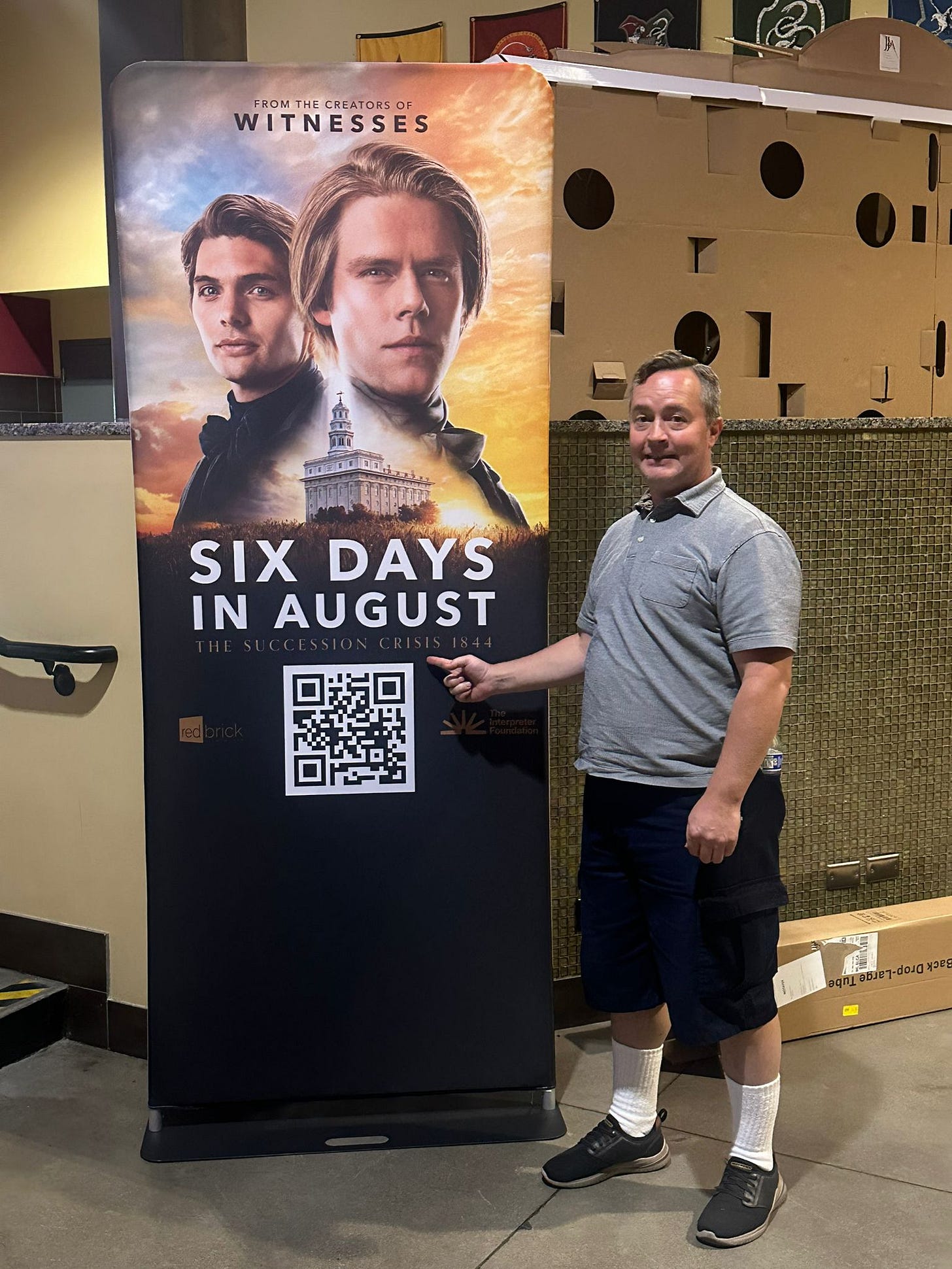My Father Is Present with You
A Preface to Our Study of Doctrine and Covenants 12-17 and Joseph Smith History 1:66-75
I love the story of Abinadi in the Book of Mormon. It is true.
The conflict between the wicked tyrant Noah, his wicked priests, and his people on the one hand, and the Lord’s servant and messenger Abinadi on the other hand is of epic proportions.
Why did Mormon include this story in his abridgment of the Nephite record?
I believe that in many ways Abinadi foreshadows, or is a type of Jesus Christ. Abinadi is also a type of the Prophet Joseph Smith. Furthermore, Abinadi is probably a type of the Davidic Servant and other servants of Christ in the last days who preach repentance to wicked leaders and wicked people.
I am studying and writing on the topic of tyranny in the Athen’s Flame section of The Torch. There are some interesting similarities and differences between the poet Simonides’ approach to the tyrant Hiero on the one hand and the prophet Abinadi’s approach to the tyrant Noah on the other hand. Without delving too deeply into the topic, the most significant difference is that rather than attempt to persuade the tyrant with philosophic questions and rhetoric as Simonides does with Hiero, Abinadi preaches repentance and delivers a message directly from the Lord Jesus Christ to the tyrant Noah.
I would like to explore this topic more deeply in a future post because of its direct relevance to us today - to us as citizens of the United States of America under a Trump presidency, and to us as members of the Church of Jesus Christ of Latter-day Saints under a Nelson presidency. There are certain elements of both presidencies that hint of tyranny, but men are innocent until proven guilty. On the surface, at least, there appear to be many good and even great things that both Trump and Nelson are doing. I’m not ready to call either one a Hiero or a Noah, but the question merits investigation, and modern Abinadis are needed now more than ever.
In fact, I admire Abinadi as a kind of Mormon patron saint of The Torch. Abinadi spoke the truth and preached repentance boldly. He feared no man and defied tyranny and wickedness. He loved the Lord and sought only to do His will. The name Abinadi may mean “My Father is present with you.”
Now, back to our study of the Doctrine and Covenants.
This week Meridian Magazine shared a video from the The Interpreter Foundation about Oliver Cowdery.
In this video, Camrey Bagley Fox, who played Emma Smith in the movie Witnesses, interviews Gerrit Dirkmaat, Associate Professor of Church History and Doctrine at Brigham Young University. It is a great video and helpful for understanding the foundations of the Restoration. I sat next to Gerrit during a premiere screening of the new film by The Interpreter Foundation: Six Days in August. I noticed that Elder Dallin H. Oaks and Elder Gary E. Stevenson were also present at the same screening. (I may have more to write on the topic of Six Days in August in connection with my study of the topic of prophetic succession.)
This week, February 17-23, we will study Doctrine and Covenants 12-17 and Joseph Smith History 1:66-75. The Restoration of the Gospel of Jesus Christ gains momentum with the miraculous appearance of John the Baptist and the conferral of the Aaronic Priesthood upon Joseph Smith and Oliver Cowdery. We are introduced to the Whitmer Family. We learn about Priesthood keys and the meaning of keys. We learn about ordinances and blessings. We learn about witnesses. We learn about the great importance of bringing souls unto Christ.
I look forward to our study this week.








